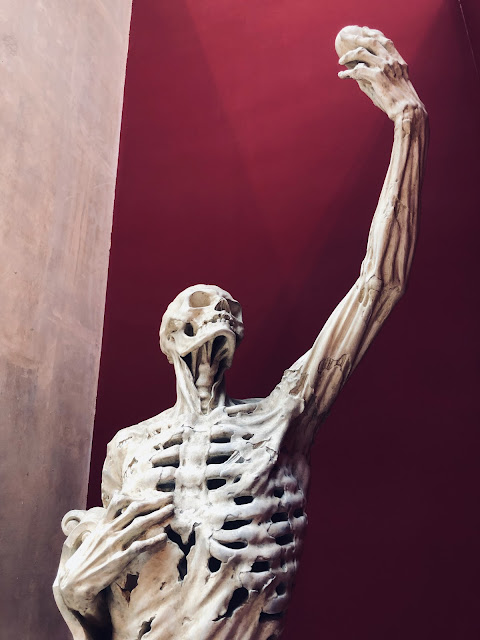Vienna Calling
 |
| The Emperor Quartet, throwing it down in Kapuzinerkirche, Vienna |
If Vienna is best known for anything, it is music. I wont argue the merits of Mozart vs. wienerschnitzel. Suffice it to say, Vienna excels at both but one just has more world-historical street cred than the other.
Going to hear and see live music performances in Vienna is just about as easy as finding delicious wienerschnitzel. Between the Staatsoper (State Opera House), the Konzerthaus, or just about every church and any kind of indoor space you can think of, you can get inexpensive tickets to hear superb musicians playing the great hits of yesteryear from Wolfgang Amadeus, Johann Sebastian ... and the rest. And it sounds lovely, and familiar, a truly beautiful and memorable experience for those of us whose only know European classical music from Bugs Bunny cartoons.


Think I saw this dude one time on Letterman. Vaguely remember a baby backup band.
Not only is it easy to indulge in Eine Kleine Hohekultur, it's hard to avoid the opportunity. The entry of just about every museum and concert hall has a small table installed outside, with brochures for nightly musical offerings and a friendly vendor ready to print or email tickets on the spot. Sometimes the sellers are dressed in what I assume to be typical clothing of the baroque period--the kind worn by footmen and ladies-in-waiting, I mean, not the rags that would have covered common street rabble. Who even remembers what kind of music they were into? There are also signs posted near music venues (i.e., everywhere) warning against buying tickets from scalpers--who will in fact approach you on the sidewalk, and who also often dress à la baroque, which oddly makes them seem even more official than some of the authorized ticket sellers.
But no matter. The town is crazy for ensemble concertos, opéras, nocturnes, rhapsodies, waltzes, sonatas ... and the rest. You can indulge in it pretty much everywhere, except (I'm happy to say) out on the streets, in public squares and parks. I can't recall seeing a single busker, that odious signal of overtourism. There is no lingering dread of yet another string quartet version of Wonderwall awaiting just around the next corner. Maybe there are just too many paying gigs for musicians to bother with the street trade--or maybe the Vienna Musicians Union is simply terrifying and keeps everyone in line through legal means or otherwise. A bassonist or two floating facedown on the Blue Danube is perhaps message enough to keep everyone playing nicely.
There is music in the architecture, in the artwork, and in the shops. Musikhaus Doblinger was filled with sheet music and songbooks, like a smaller, tidier, better-organized version of the late, great Colony Music in Manhattan. Piano stores were as common as showrooms for any other type of furniture.




And above it all, completely unexpectedly to me, was Johann Hölzel, better known to the world as Falco. Falco had his biggest hit in 1986 with "Rock Me Amadeus," riding the coattails of the Oscar-winning film Amadeus a few years earlier. Prior to that global smash, he may have been known to MTV viewers for his German-language video "Der Kommissar"--which if I remember correctly, popped up only after the English-language version by UK band "After the Fire" had pretty heavy rotation. After the Fire's video had sexy intrigue, rewind special effects and, for some reason, a tarantula. Falco's video basically had Falco doing Falco stuff. Which seems to have been enough, considering that his presence was everywhere in the city, from a nightclub bearing his name, to autographed photos and memorabilia in cafés, to a stage musical about his life.




Vienna, a vast shrine to Falco, and Falco's actual shrine in Zentralfriedhof (lower right).
Falco was killed in a car accident in 1998, aged 40. His grave appeared to be among the most visited in the Wiener Zentralfriedhof, where he can be found among other musical honorees such as Beethoven, Brahms, Schubert, Schoenberg, and a couple of Strausses. Not bad for a local in a town that knows, loves and celebrates its grand musical heritage.



Comments
Post a Comment